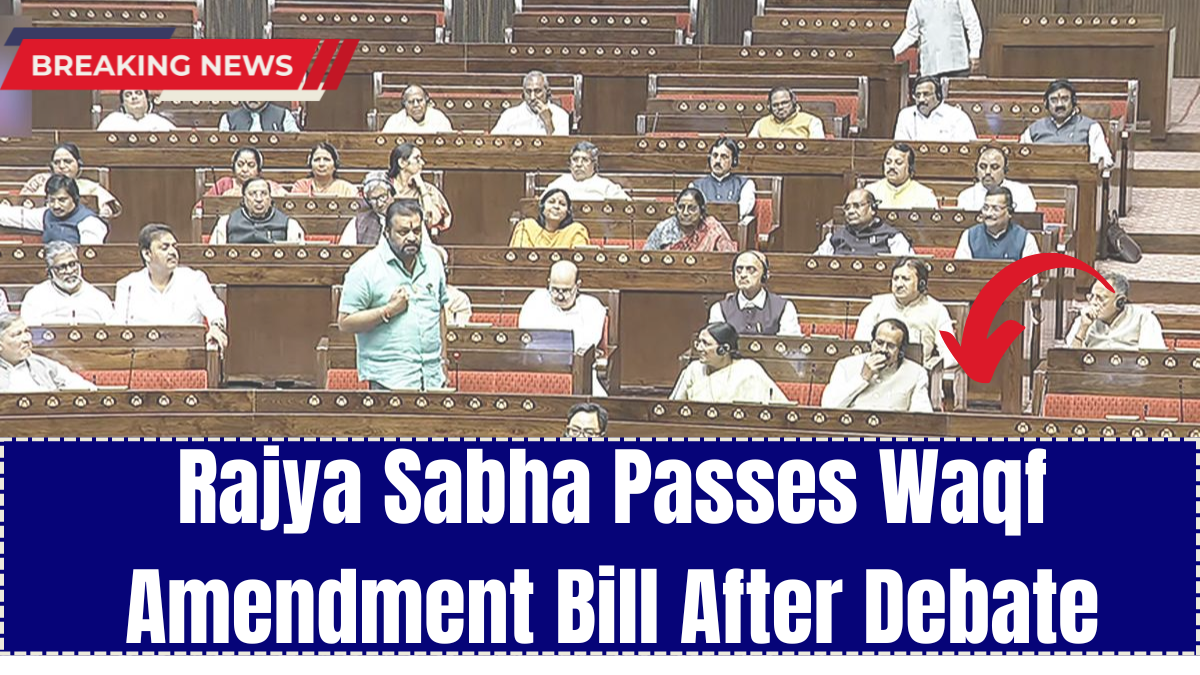The Rajya Sabha has passed the Waqf (Amendment) Bill 2025 after an intense and lengthy debate that continued well into the night on Thursday. This bill, following the Lok Sabha’s approval a day earlier, now awaits the President’s assent to become law.

Key Points of the Debate
-
The debate on the bill lasted over 12 hours, with arguments from both the treasury and opposition benches.
-
128 members voted in favor of the bill, while 95 voted against it, though the final numbers are still subject to correction.
-
Union Minority Affairs Minister Kiren Rijiju defended the bill, addressing concerns raised by the opposition, who described it as “unconstitutional” and an “attack on religious freedom.”
What Does the Waqf Amendment Bill 2025 Entail?
The revised bill, introduced during the ongoing Budget session, aims to amend the 1995 Waqf Act to address its shortcomings. Key provisions include:
-
Improved Administration and Management: Enhances the efficiency of Waqf boards in India.
-
Technology Integration: Increases the use of technology for managing Waqf records and improving the registration process.
-
Recommendations from JPC: The bill incorporates suggestions from the Joint Parliamentary Committee (JPC), which examined the earlier version of the bill introduced in August 2024.
Government’s Stand on the Bill
Union Minister Kiren Rijiju emphasized the changes made to the bill after considering suggestions from various stakeholders. He stressed that the current version of the bill is significantly different from its original draft, thanks to the input received.
Next Steps
With the Rajya Sabha’s approval, the bill is now set to receive the final approval from the President of India. Once passed, it will officially become law and aim to streamline the management of Waqf properties across the country.
FAQs
1. What does the Waqf Amendment Bill 2025 aim to address?
The bill aims to improve the administration and management of Waqf properties, enhance the registration process, and integrate technology to manage Waqf records more efficiently.
2. How long did the debate on the Waqf Amendment Bill last in Rajya Sabha?
The debate lasted more than 12 hours, with significant discussions and differing views from both the government and opposition.
3. Who defended the Waqf Amendment Bill in the Rajya Sabha?
Union Minority Affairs Minister Kiren Rijiju defended the bill during the debate, stressing the changes made to the original draft based on recommendations from the Joint Parliamentary Committee.
4. What is the next step for the Waqf Amendment Bill?
The bill has been passed by both the Lok Sabha and Rajya Sabha and will now be sent to the President of India for final assent before it becomes law.
Conclusion
The passing of the Waqf (Amendment) Bill 2025 marks an important step in improving the management of Waqf properties in India. With the inclusion of technological advancements and better regulatory frameworks, the bill seeks to address long-standing issues related to the management of these properties. As the bill now awaits the President’s approval, it is expected to bring significant changes to the Waqf system, impacting both the administration and the communities involved.
Click here to know more.
